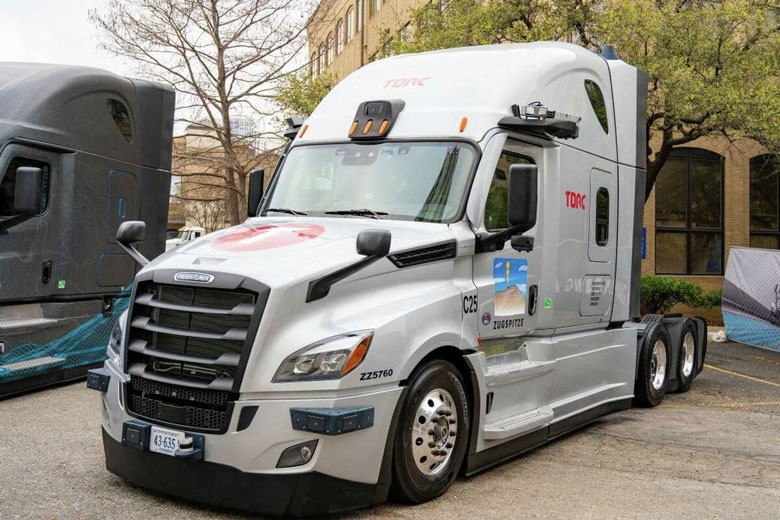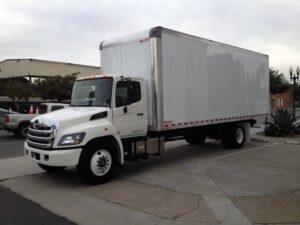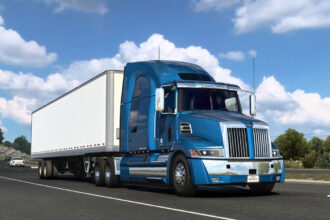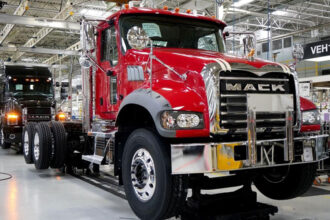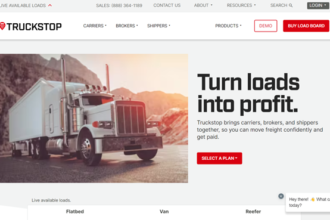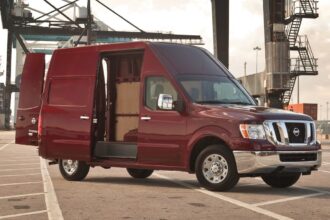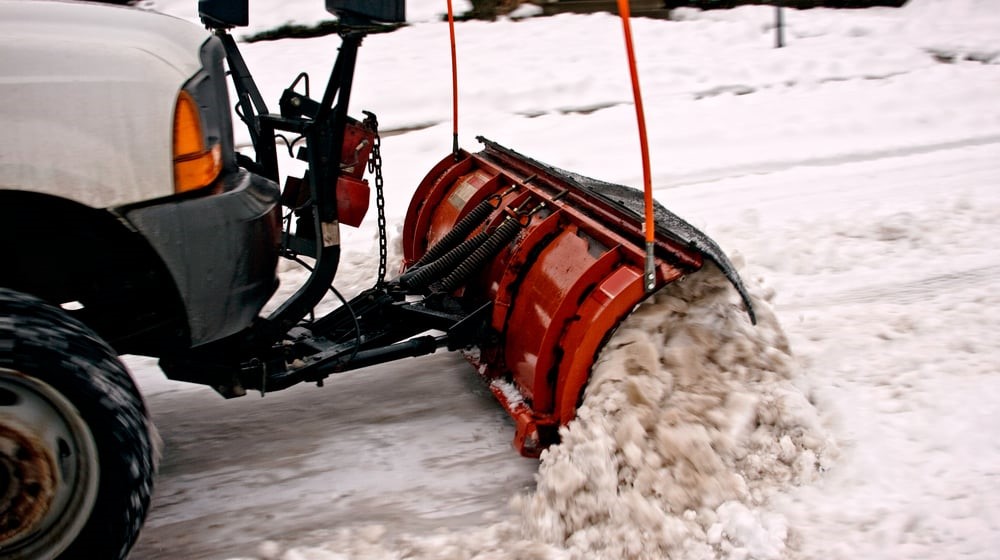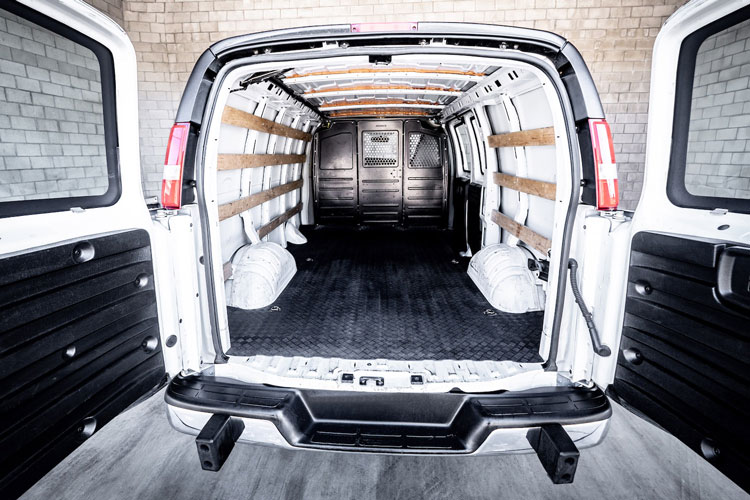Table of Contents
Introduction
In the world of 18-wheeler business, your success hinges on securing loads consistently to sustain a profitable operation. You operate and manage a fleet of these mammoth trucks, consisting of a tractor unit and a semi-trailer. These vehicles are your primary tools for transporting goods across extensive distances during long-haul journeys.
To thrive in this industry, you need a meticulous approach to securing loads. Start by leveraging load boards and freight brokerages. These online platforms connect shippers with carriers, offering you a wide array of available loads.
Additionally, you need to build relationships with shippers, freight brokers, and logistics companies as it can help you secure consistent loads. Always maintain your network, as word-of-mouth referrals often uncover lucrative opportunities.
It’s also crucial you adapt to market demands and fluctuating freight rates to optimize your business. Make sure you stay vigilant, resourceful, and adaptable because it will help you navigate the load-finding process in the 18-wheeler industry effectively.
18-Wheeler Business How to Find Loads:
- Utilize Load Boards
- Engage Freight Brokerages
- Network with Shippers
- Foster Industry Connections
- Stay Proactive
- Monitor Market Trends
- Optimize Your Business Strategies
Recap
>>>MORE: How to Start an 18-Wheeler Business
1. Utilize Load Boards
You can use load boards to efficiently source a diverse array of available loads in the 18-wheeler business. These online platforms act as a hub where you, as a trucking operator, can discover a multitude of shipment opportunities posted by shippers and freight brokers.
It offers you a comprehensive range of loads suited for various trailer types, including those specifically tailored for 18-wheelers. For instance, on platforms like DAT Load Board or Truckstop.com, you can access real-time information about loads, its origins, destinations, and offered rates.
You have the advantage of filtering these listings based on your preferences, such as location, cargo type, or desired payment. Moreover, these boards facilitate direct communication between you and the shipper or broker, enabling negotiation or clarification of load details.
Regularly engage with these load boards as it’ll equip you with up-to-date opportunities, empowering you to make informed decisions regarding which loads best fit your schedule, route, and financial goals in the 18-wheeler industry.
2. Engage Freight Brokerages
Do you know that engaging with freight brokerages in the 18-wheeler business opens doors for you to access a vast array of load opportunities tailored specifically for your sizable trucking operation? These brokerages act as intermediaries connecting you, the 18-wheeler operator, with shippers in need of reliable transportation services for goods.
By partnering with reputable freight brokerages like CH Robinson or Coyote Logistics, you gain access to a wide network of shippers and a spectrum of freight loads. These brokerages handle the logistics, negotiations, and paperwork, easing your burden while ensuring you secure suitable and profitable loads for your 18-wheelers.
Through these partnerships, you can tap into industry insights, gain access to higher-paying loads, and expand your clientele. Make sure you build strong relationships with freight brokerages because it is pivotal in maintaining a consistent flow of lucrative loads, allowing you to optimize your 18-wheeler business and grow within the industry.
3. Network with Shippers
Networking with shippers is vital for your success in the 18-wheeler business, granting you direct access to valuable load opportunities while nurturing long-term partnerships.
It’s important you actively connect and foster relationships with shippers within industries needing transportation services for goods. You can achieve this by attending industry events, joining relevant associations, or even through online platforms like LinkedIn.
When you establish rapport with shippers, you position yourself as a reliable and trusted transporter. This relationship-building process involves understanding the shipper’s specific needs, delivery timelines, and the types of goods the shipper typically transports.
When you demonstrate your reliability and professionalism, you increase the likelihood of securing consistent loads directly from these shippers. Maintaining a robust network of shippers creates a reliable source of loads, ensuring a steady flow of work for your 18-wheeler business while solidifying your position within the industry.
>>>PRO TIPS: 18-Wheeler Business Accessories you Need to Succeed
4. Foster Industry Connections
It’s crucial you foster industry connections with professionals because it can open lead to valuable load opportunities and collaborations for your 18-wheeler business. Make sure you actively engage with fellow trucking operators, freight brokers, logistics companies, and industry-related organizations.
You can attend industry conferences, participate in forums, or join associations like the American Trucking Associations (ATA) because it provides you with avenues for building relationships.
These connections offer you insights into market trends, potential leads for loads, and even collaborative ventures. For instance, partnering with a logistics company might introduce you to exclusive contracts or specialized load opportunities tailored for 18-wheelers.
By fostering these connections, you position yourself at the forefront of industry developments, gaining access to a pool of potential clients and collaborators. These relationships often unveil lucrative load prospects and pave the way for mutually beneficial business ventures within the 18-wheeler industry.
5. Stay Proactive
Staying proactive helps you to consistently secure loads for your 18-wheeler business and adapt to the dynamic industry landscape. Always actively seek out new opportunities rather than waiting for them to come to you. Keep a close eye on load boards, regularly checking for fresh postings that align with your trucking capabilities.
Maintain constant communication with your existing network of shippers, freight brokers, and industry contacts to stay updated on potential load openings. Make sure you keep refining your marketing strategies, ensuring your services are visible and appealing to potential clients.
For example, regularly updating your online presence or investing in targeted advertising can attract more load offers. By being proactive in your load-finding efforts, you position yourself to swiftly seize new opportunities and adapt to changes, ensuring a steady flow of profitable loads for your 18-wheeler business.
6. Monitor Market Trends
You need to monitor market trends so you can make informed decisions for your 18-wheeler business and stay ahead in the industry. Keep a constant eye on freight rate, as it fluctuates based on supply and demand dynamics. By understanding these trends, you can negotiate better rates for your services.
You should observe shifts in consumer behavior and industry demands. For instance, during peak seasons or specific events, certain types of goods might be in higher demand, presenting lucrative hauling opportunities for your 18-wheeler. Additionally, technological advancements or regulatory changes can influence transportation needs, impacting the types of loads available.
Make sure you analyze industry publications, economic reports, and transportation forums so you can stay updated. This helps you anticipate market shifts, adjust your strategies, and position your 18-wheeler business to capitalize on emerging trends, ensuring a steady flow of profitable loads.
7. Optimize Business Strategies
You can also secure and manage loads for your 18-wheeler business by optimizing your business strategies. Begin by assessing your operational processes. Evaluate how efficiently your trucks are utilized and explore ways to minimize downtime between loads.
For instance, optimizing routes and scheduling can help you maximize your truck’s capacity. You should invest in technology and tools that streamline operations. Implement GPS tracking systems or load management software that can enhance efficiency, enabling you to track shipments, manage paperwork, and communicate effectively with clients.
Moreover, analyze your financial strategies. Consider factors like fuel efficiency, maintenance costs, and pricing models to ensure your rates remain competitive while sustaining profitability. Always review and refine these strategies to ensure your 18-wheeler business remains agile, efficient, and well-equipped to handle the demands of the load-hauling market.
Recap
To find loads for your 18-wheeler business, use load boards, partner with freight brokerages, and network with shippers. Make sure you stay proactive, monitor market trends, and optimize your business strategies. These steps help you navigate the industry, ensuring a steady flow of profitable loads for your trucking business.


